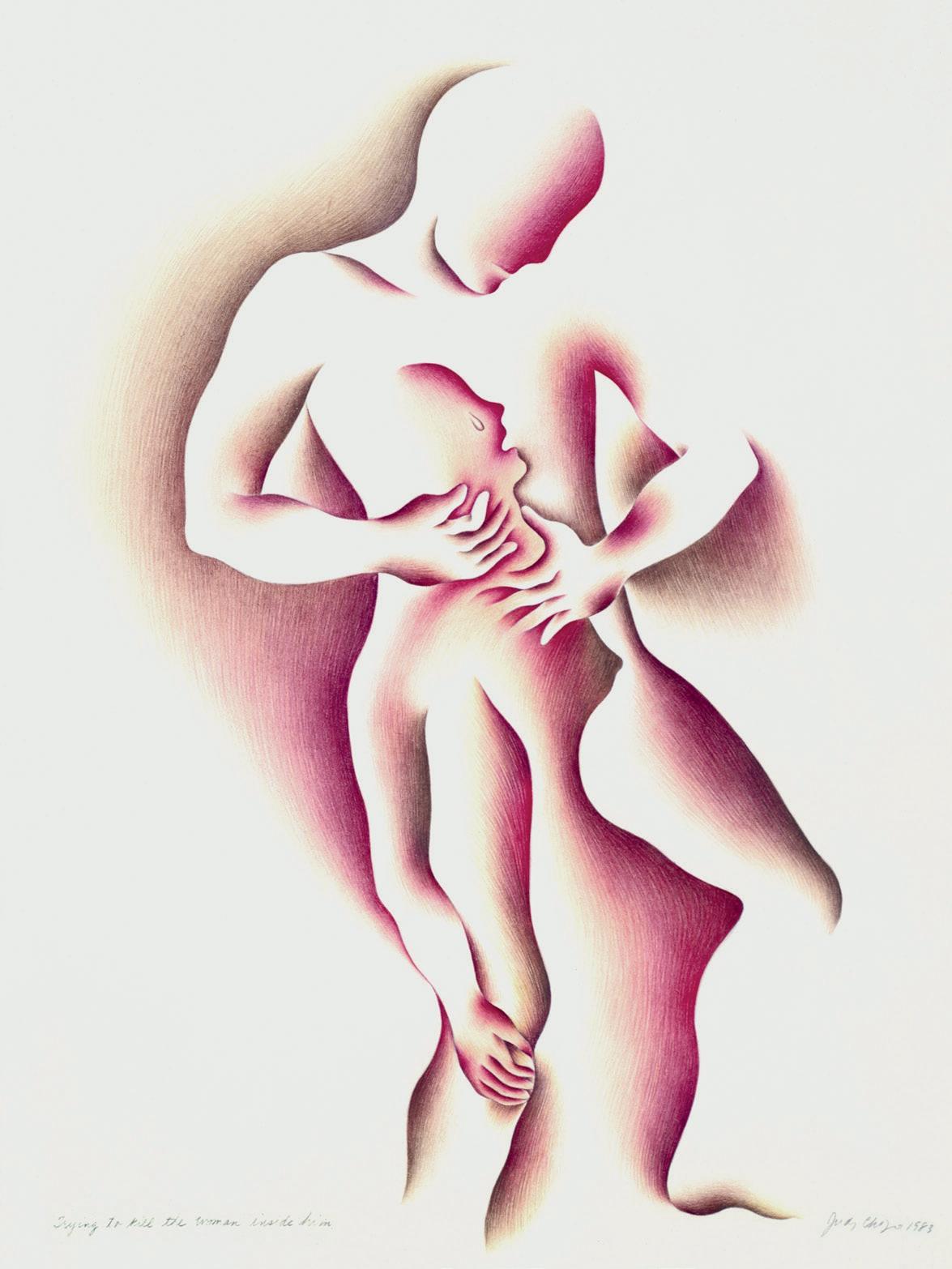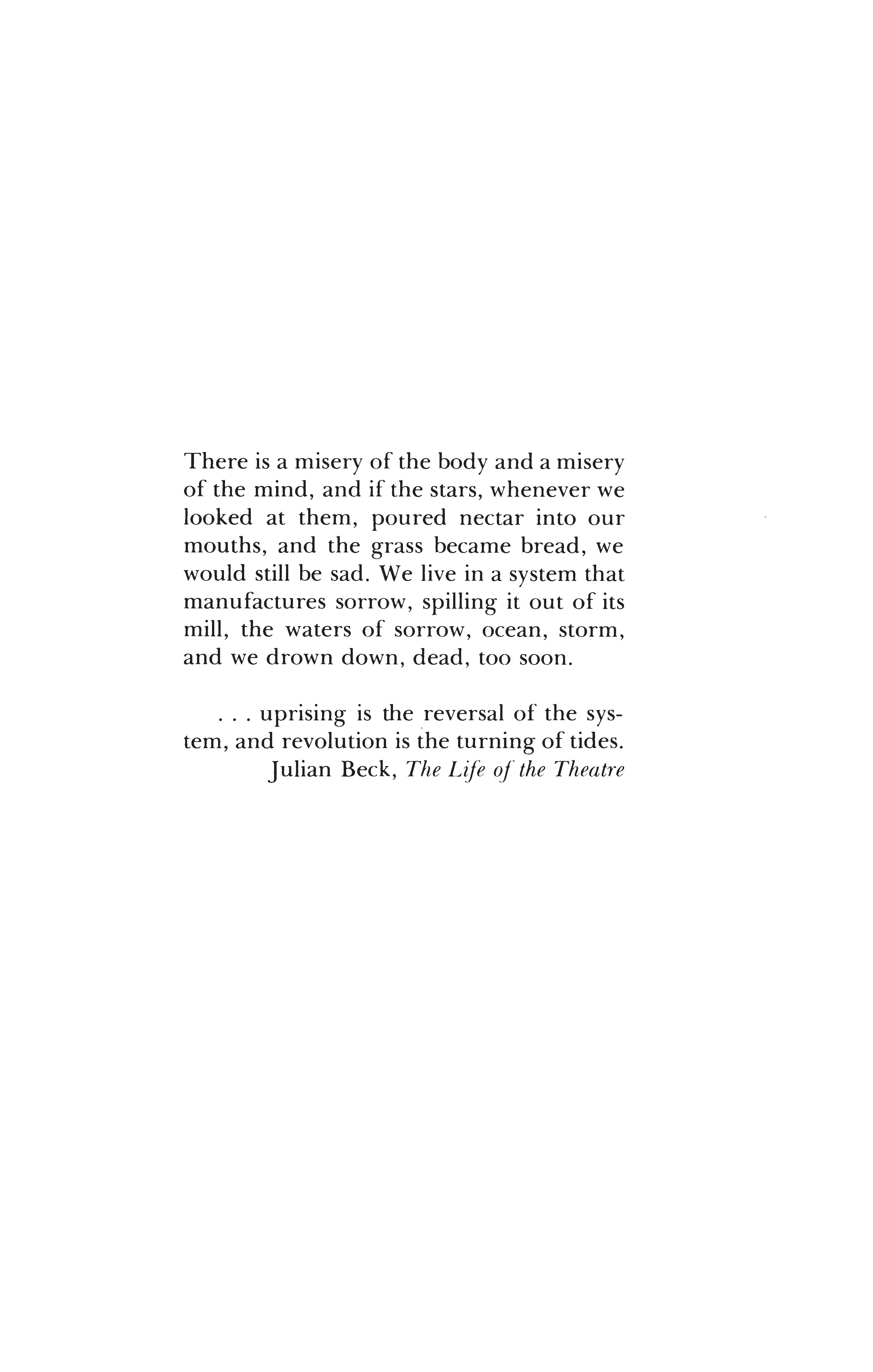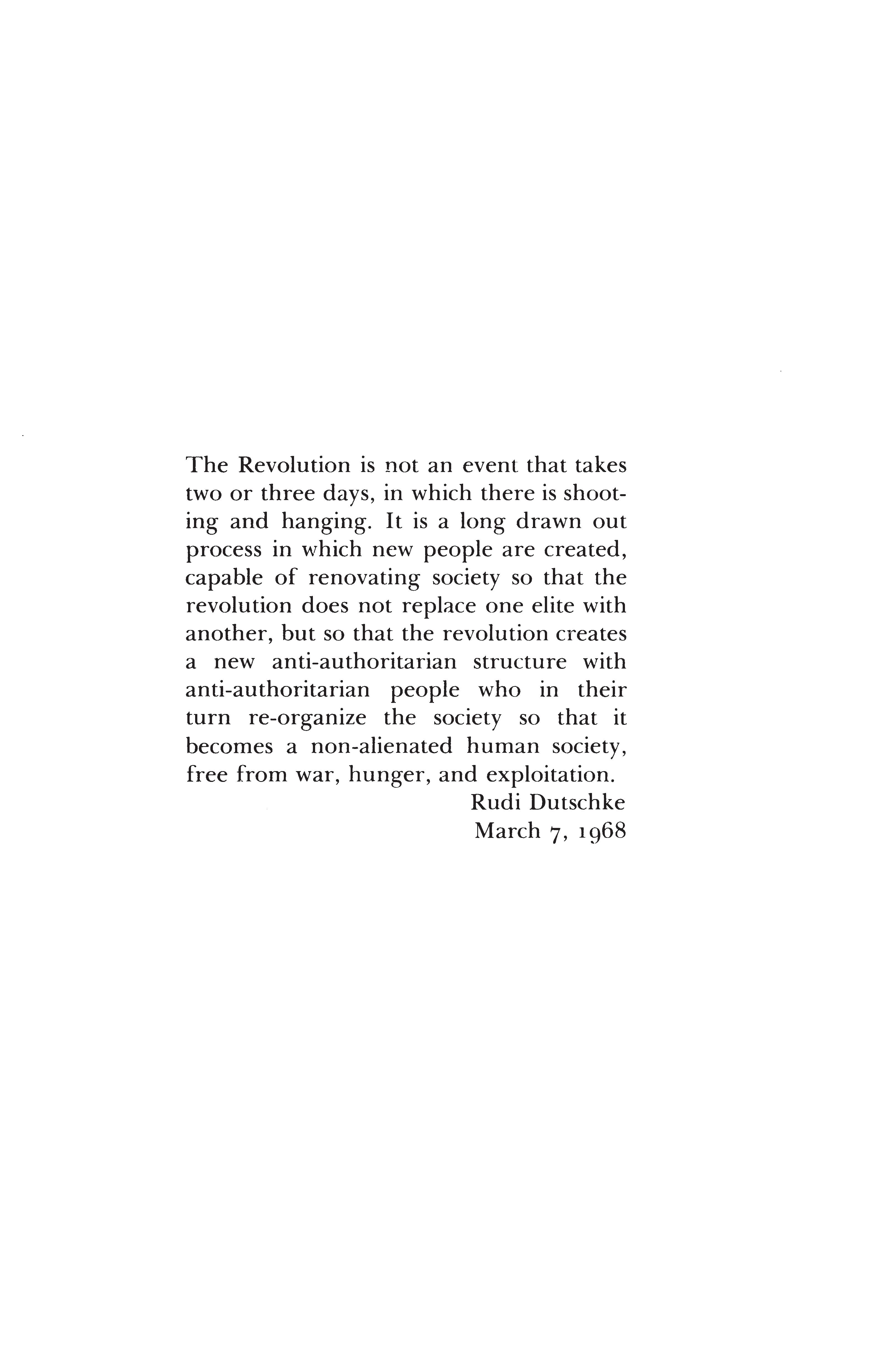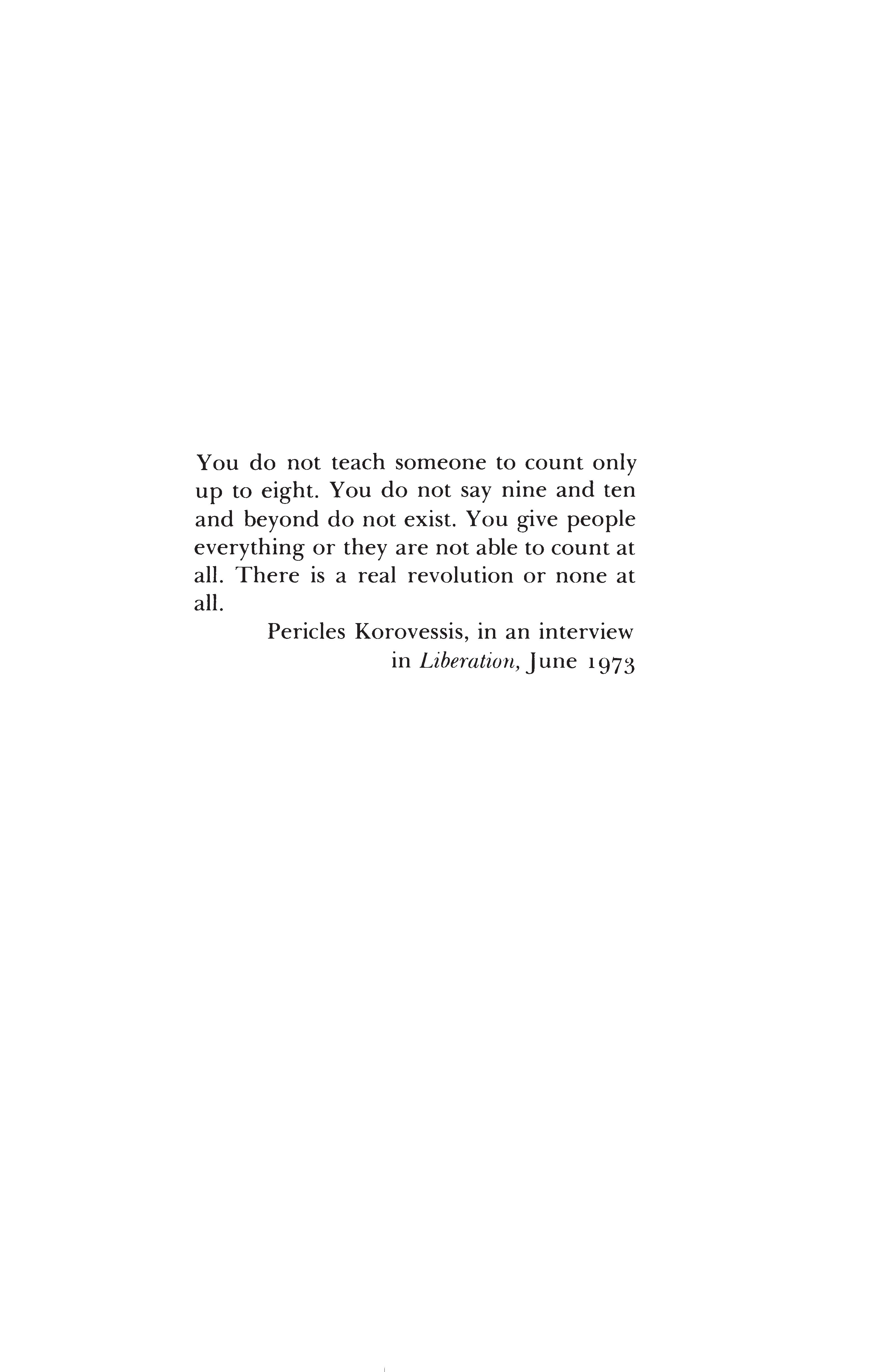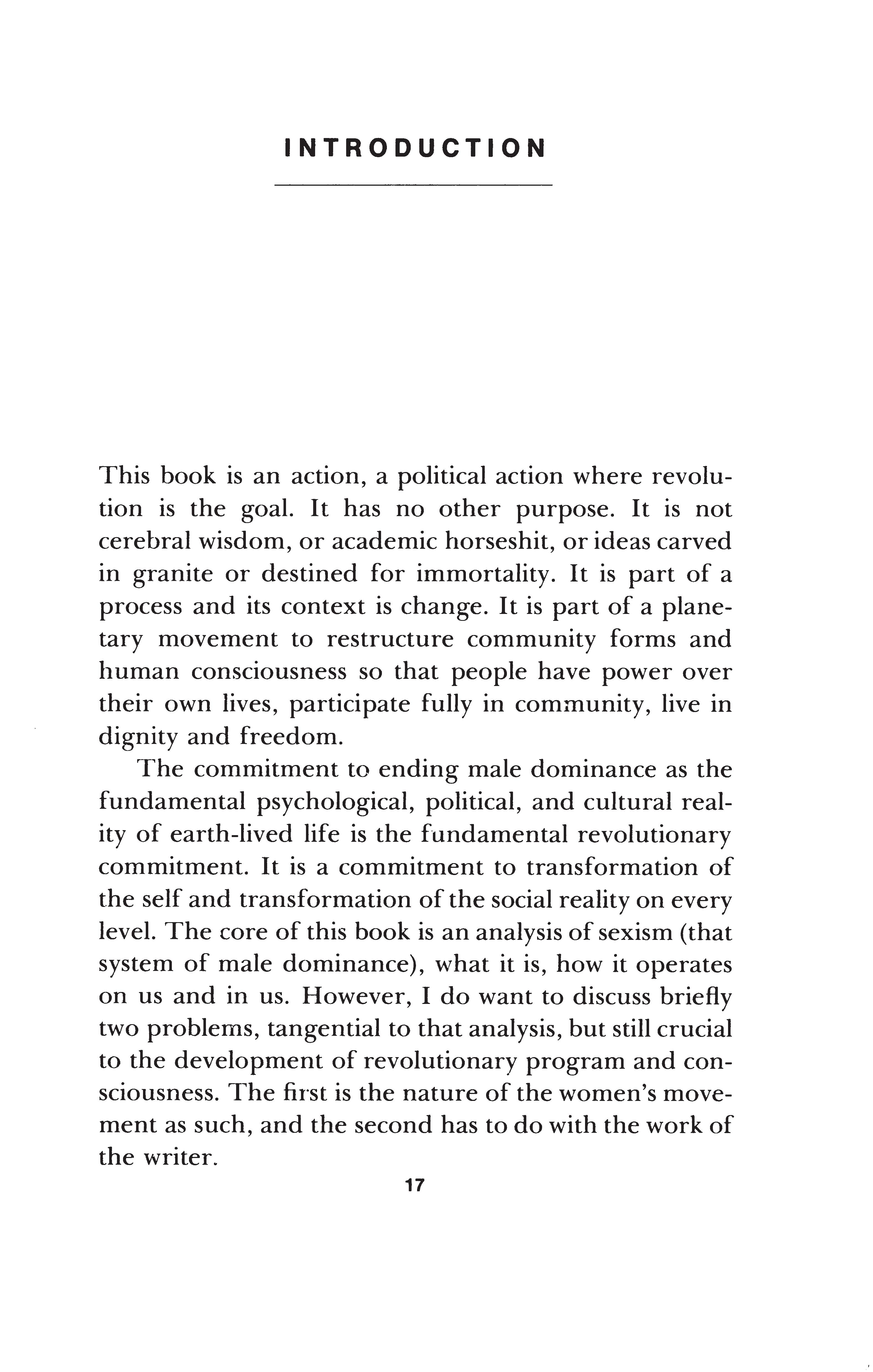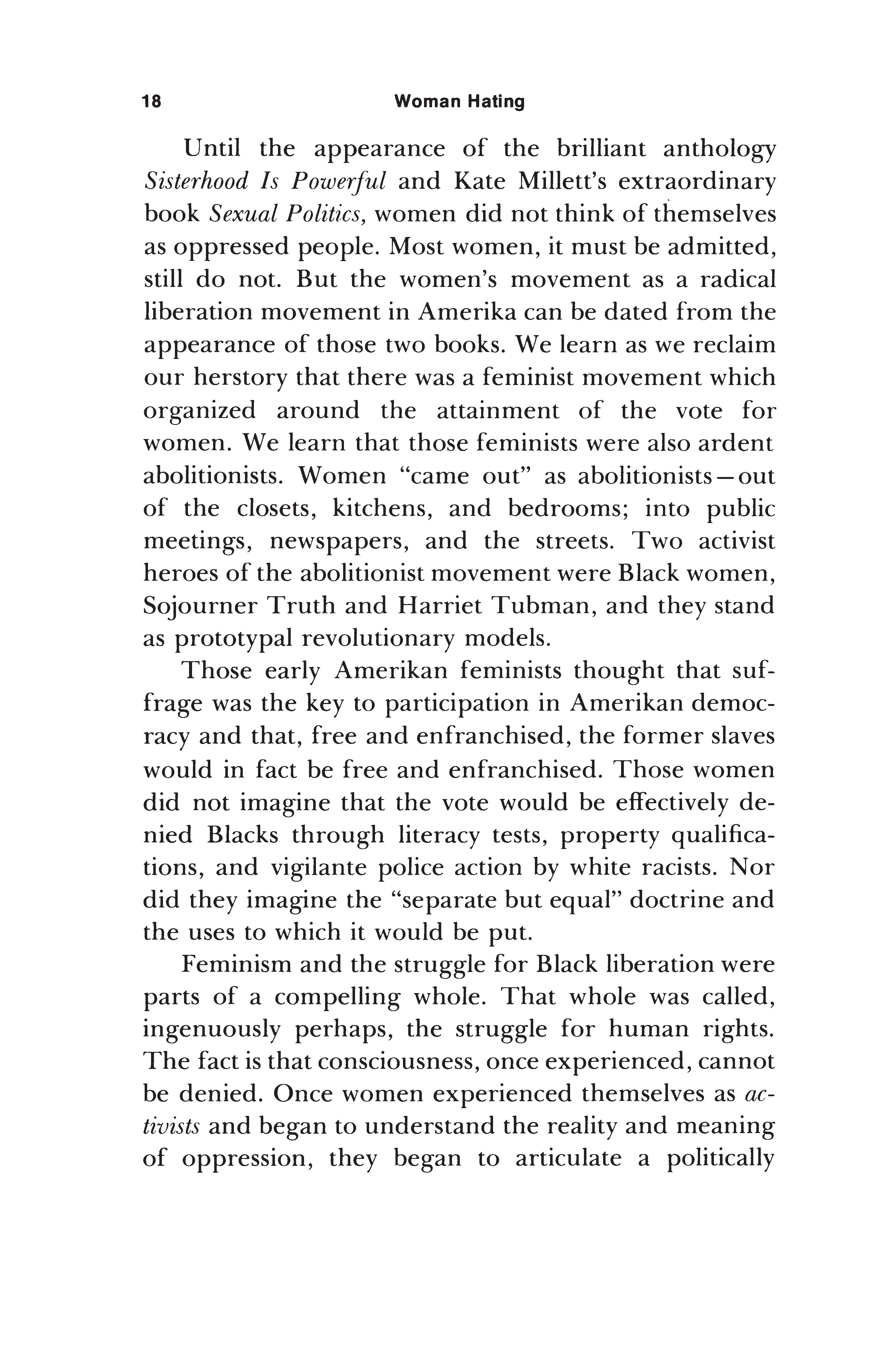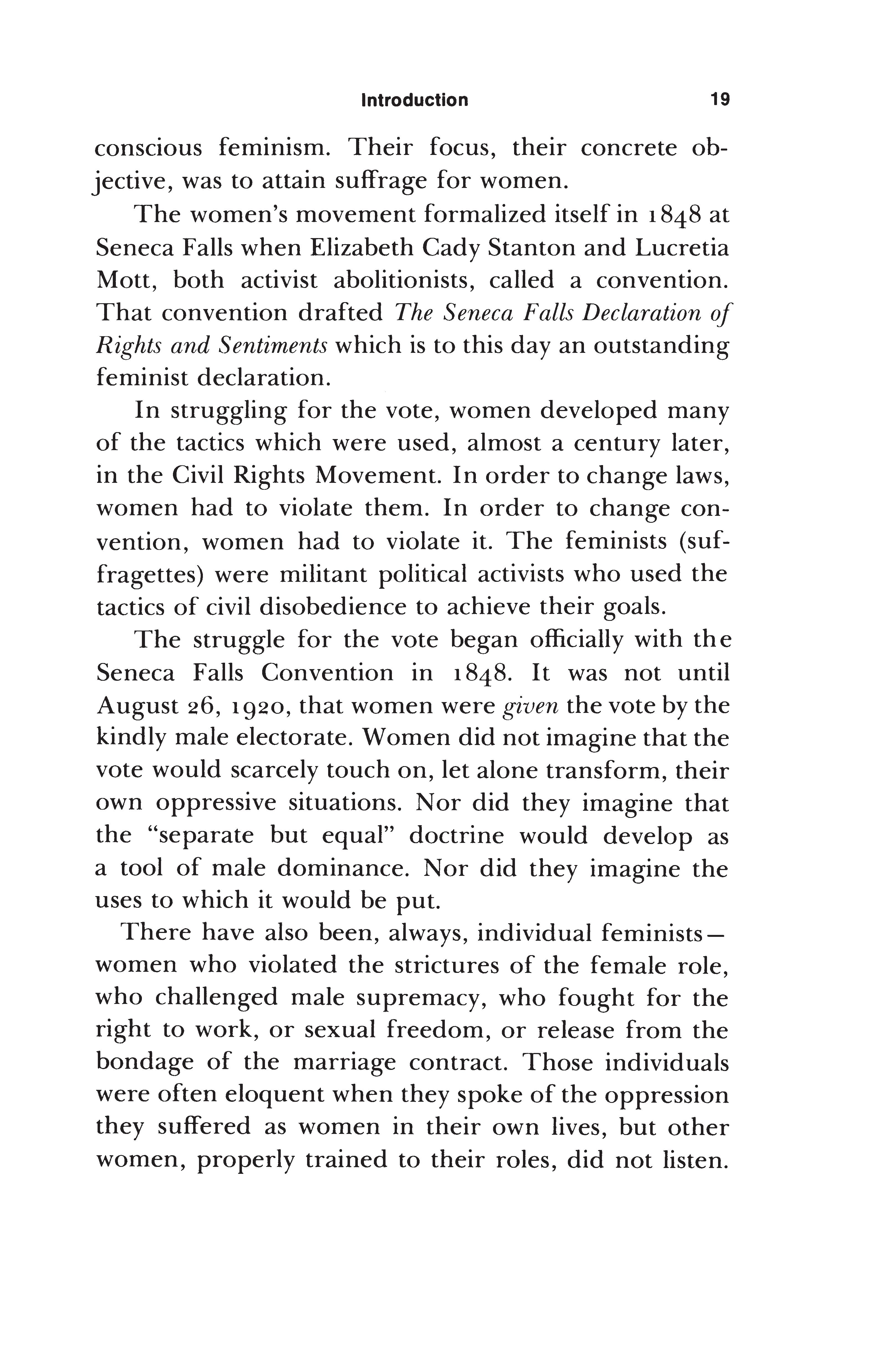Andrea Dworkin Woman Hating
Woman Hating
‘One of the world’s most notorious radical feminists . . . How refreshing her style of speaking and writing – intoxicating and unapologetic – is compared with the “fun-feminist” prose we see so often on modern bookshelves’ Guardian
‘Dworkin’s books do matter. They contain certain truths, of the kind many women recognize as they hear them, about the bewildering ubiquity of sexual violence, the lie this violence gives to the promise of women’s equality, and the continuities between the most grotesque aspects of women’s treatment at the hands of men and the more quotidian assaults on dignity with which nearly all women are intimately familiar. Dworkin’s books speak in a singularly powerful voice: she is one of the more underappreciated prose stylists in postwar American writing. Her books matter too in the more straightforward sense that they have been of real material consequence. Through them, Dworkin helped shape the trajectory of American feminism, giving definitive expression to the radical feminist tenet that sexual domination was the beating heart of patriarchy, and placing the legal battle against rape, domestic violence, sex work and, above all, pornography at the top of the feminist agenda’ Amia Srinivasan, LRB
‘There could be no serious debate on matters such as sexual violence or consent without acknowledging the unflinching courage and originality of her thinking’ Observer
‘Andrea was like an Old Testament prophet. She was always warning about what was about to happen and because of that she was frequently misunderstood. But she also had a breadth and depth of intelligence that was refreshing’ Gloria Steinem
‘Her dystopian vision of a women’s experience dominated at all times by male violence, or the fear of it, could feel like a bold stance against feel-good corporate feminism . . Dworkin’s work leaped off the page’ Jacobin
‘Her writing is a strident and raw look at the systemic bias affecting the everyday experiences of women . . . discomfiting and exhilarating’ The New York Times
ABOUT THE AUTHOR
Andrea Dworkin (1946–2005) was an American radical feminist activist and writer, and leading thinker in the second-wave feminist movement. She is the author of twelve books, including Pornography, Right-Wing Women, Woman Hating, Intercourse, and more.
Andrea Dworkin Woman Hating
UK | USA | Canada | Ireland | Australia
India | New Zealand | South Africa
Penguin Classics is part of the Penguin Random House group of companies whose addresses can be found at global.penguinrandomhouse.com.
Penguin Random House UK
One Embassy Gardens, 8 Viaduct Gardens, London SW 11 7BW
penguin.co.uk
First published in the United States of America by E. P. Dutton & Co. 1974
Published as a Picardor paperback 2025
This edition published in Great Britain in Penguin Classics 2025 001
Copyright © Andrea Dworkin, 1974
Owing to limitations of space, all acknowledgments for permission to reprint previously published material can be found on page 209.
Drawing on page 88 by Jean Holabird.
Penguin Random House values and supports copyright.
Copyright fuels creativity, encourages diverse voices, promotes freedom of expression and supports a vibrant culture. Thank you for purchasing an authorized edition of this book and for respecting intellectual property laws by not reproducing, scanning or distributing any part of it by any means without permission. You are supporting authors and enabling Penguin Random House to continue to publish books for everyone. No part of this book may be used or reproduced in any manner for the purpose of training artificial intelligence technologies or systems. In accordance with Article 4(3) of the DSM Directive 2019/790, Penguin Random House expressly reserves this work from the text and data mining exception.
The moral rights of the author and translator have been asserted
Typeset by Jouve (UK ), Milton Keynes
Printed and bound in Great Britain by Clays Ltd, Elcograf S.p.A.
The authorized representative in the EEA is Penguin Random House Ireland, Morrison Chambers, 32 Nassau Street, Dublin D 02 YH 68
A CIP catalogue record for this book is available from the British Library
isbn : 978–0–241–73595–4
Penguin Random House is committed to a sustainable future for our business, our readers and our planet. This book is made from Forest Stewardship Council® certified paper.
For Grace Paley and in Memory of Emma Goldman
. . . Shakespeare had a sister; but do not look for her in Sir Sidney Lee’s life of the poet. She died young—alas, she never wrote a word. . . . Now my belief is that this poet who never wrote a word and was buried at the crossroads still lives. She lives in you and in me, and in many other women who are not here tonight, for they are washing up the dishes and putting the children to bed. But she lives; for great poets do not die; they are continuing presences; they need only the opportunity to walk among us in the esh. This opportunity, as I think, it is now coming within your power to give her. For my belief is that if we live another century or so—I am talking of the common life which is the real life and not of the little separate lives which we live as individuals—and have ve hundred a year each of us and rooms of our own; if we have the habit of freedom and the courage to write exactly what we think; if we escape a little from the common sitting-room and see human beings not always in their relation to each other but in relation to reality . . . if we face the fact, for it is a fact, that there is no arm to cling to, but that we go alone and that our relation is to the world of reality . . . then the opportunity will come and the dead poet who was Shakespeare’s sister will put on the body which she has so often laid down. Drawing her life from the lives of the unknown who were her forerunners, as her brother did before her, she will be born. As for her coming without that preparation, without that effort on our part, without that determination that when she is born again she shall nd it possible to live and write her poetry, that we cannot expect, for that would be impossible. But I maintain that she would come if we worked for her, and that so to work, even in poverty and obscurity, is worth while.
—virginia woolf, A ROOM OF ONE ’ S OWN (1929)
